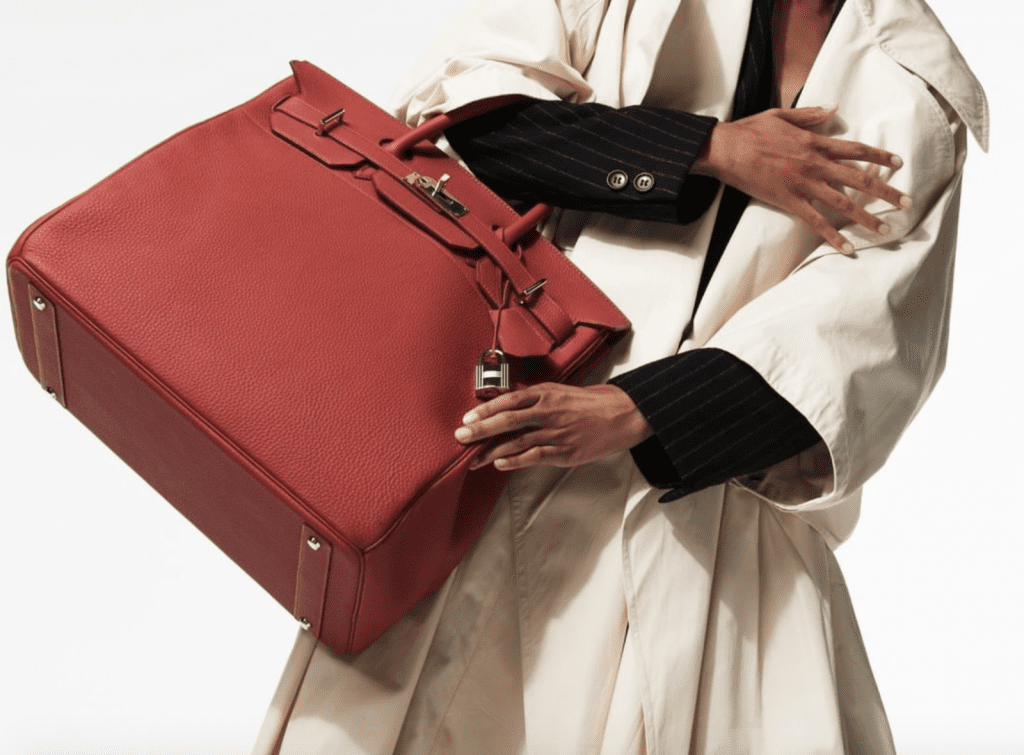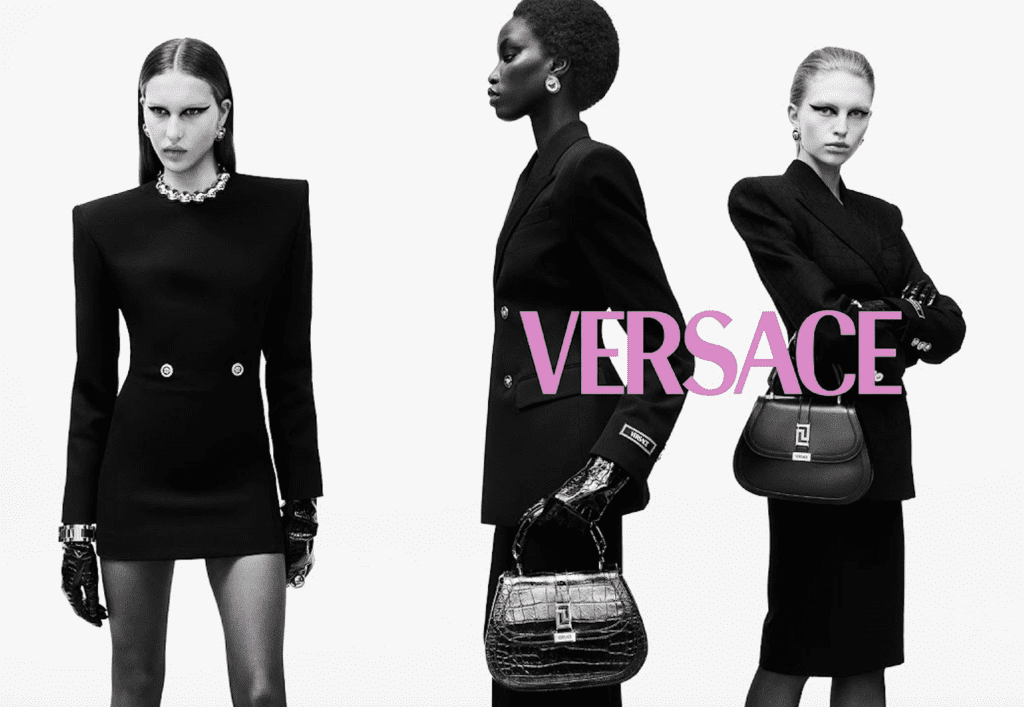Ten years ago, on an otherwise ordinary day in October 2010, news broke that LVMH Moët Hennessy Louis Vuitton chairman Bernard Arnault had built up a sizable stake in Hermès. The Paris-based luxury goods conglomerate revealed in a statement, as required by French finance law, that it had acquired a 14.2 percent stake in the then-173-year old Hermès, in which the Puech, Dumas and Guerrands families controlled a 73.4 percent stake. What would come to be revealed in due time was that LVMH’s revelation that day was only the first of several that could be expected, and despite the agreement among “the majority of the Hermès families that Arnault was an unwanted interloper” with no place at their ownership table, LVMH’s notoriously ruthless leader was undeterred.
In fact, within seventy-two hours of the October 23 announcement, Arnault had struck again. LVMH revealed – by way of a markedly short press release – that in addition to its previously-disclosed 14.2 percent stake in Hermès, a sudden conversion of cash equity swaps into shares upped its stake to “a total of 18,017,246 Hermès International shares.” The conglomerate now controlled 17.1 percent of Hermès, a stake acquired at what Reuters called “a major discount to recent market levels.”
Given that Arnault had reportedly “tried and failed to buy shares from Hermès family members” in the past, the making of LVMH’s new ownership was shrouded in mystery. “Nobody knows where LVMH bought the shares from or when,” a hedge fund manager told Reuters in late October 2010. Reuters noted at the same time, foreshadowing the impropriety that was afoot, “It was not clear how LVMH bought its holding at an average price of 80.5 euros, a 54 percent discount to Friday’s closing price of 176.2 euros.”
The question in the minds of the Hermès families, the company’s CEO Patrick Thomas, analysts, and curious laymen, alike, was this: how – exactly – had LVMH come to possess an otherwise undetected 17.1 percent stake in the publicly-traded but closely-held Hermès? It would not be long before it became clear that LVMH’s stake – which ended up climbing to a whopping 23.1 percent as of July 2013 – was the result of a handful of meticulously crafted deals.
Those deals would come under the microscope in rival lawsuits that Hermès and LVMH would file against one another in 2012; Hermès filed a criminal complaint against LVMH in a Paris court in July, accusing the luxury conglomerate of insider trading, collusion and manipulating stock prices. LVMH responded in September by filing a complaint of its own against Hermès for “blackmail, slander and unfair competition.” (Hermès would file an additional lawsuit against LVMH in June 2013, seeking the cancellation of equity swaps LVMH allegedly used to secretly acquire a minority stake, in connection with that it called “the largest fraud in the history of the French stock market.”).
All the while, the French financial services watchdog Autorité des marchés financiers (“AMF”) had been investigating LVMH’s investment in Hermès, launching an official probe in November 2010, and revealing in October 2012 that it had uncovered evidence of “wrongdoing” on LVMH’s part and asked the sanctions committee to decide whether to impose penalties on LVMH.
A year later, in July 2013, following hearings to determine whether there was insider trading and share price manipulation at play in LVMH’s acquisition of Hermès shares, and thus, whether LVMH should be fined, the AMF sanctions committee determined that LVMH had, in fact, secretly bought shares in rival Hermès to build a stake in the iconic Paris-based design house, and as a result, levied a $10.4 million fine on LVMH.
A Separate Fight
LVMH’s 23.1 percent stake, which was worth $7.5 billion at the time, would end up back out of the hands of Arnault. Following a legal back-and-forth before the Paris Commercial Court, Hermès and LVMH settled their dispute in the fall of 2014, with LVMH agreeing to distribute its Hermès stake to shareholders and institutional investors in December 2014, and vowing not to buy more shares in Hermès for the next five years.
Hermès chairman Axel Dumas and Arnault both expressed “their satisfaction that relations between the two groups, representatives of France’s savoir-faire, have now been restored,” LVMH asserted in a statement at the time, and although peace has seemingly remained between the two luxury titans since then, their high-profile scuffle has since returned to headlines thanks to a separate but closely related matter.
As it turns out, executives for LVMH and Hermès may have made peace that day in court in September 2014, but trouble was brewing behind the scenes for the Hermès families.
On the heels of LVMH distributing its Hermès stake in late 2014, Hermès – “sparked by tension in the family after LVMH’s 2010 surprise stake building,” per Bloomberg, filed a criminal complaint against Nicolas Puech, asserting that the great-great-grandson of Hermès founder Thierry Hermès, and cousin to former Hermès chairman Jean-Louis Dumas, had falsely disclosed that he still owned nearly 6 percent of the company’s stock.
The impetus for the until-recently-secret complaint that Hermès filed against Puech came about during the AMF’s investigation of LVMH’s disclosures of its Hermès holdings and the legality of Arnault’s use of derivatives to build his stake in a largely undected manner. In furtherance of that probe, the French authority discovered how LVMH was able to secret build up such a considerable stake in Hermès in 2010: Puech.
According to the AMF, the single largest Hermès family shareholder was responsible for more than half of the 17.1 percent stake that LVMH amassed that year. No small matter, without Puech’s shares, LVMH “would not have been able to set up the ‘equity swaps,” a complex and opaque financial arrangement that allowed LVMH to keep its stake hidden from Hermès,” Swiss publication Le Temps wrote in May 2013.
Puech, now 77, has vigorously denied the allegations, saying via a spokesman in September 2014 when he resigned from the company’s supervisory board, that he has never sold any of his long-held shares in Hermès to LVMH. More specifically, Puech maintained that the AMF’s claim that he sold 8.8 million shares to banks utilized by LVMH chairman and CEO Arnault for equity swaps was at odds with reality, which is that he has never owned more than 6 percent of the company’s capital.
Regulators ultimately asserted that their investigation into Mr. Puech’s holdings “ran into a roadblock with Mr. Puech, because of ‘an absence of satisfactory cooperation,’” the New York Times reported in 2013.
But while Puech’s strife with his family was made most obvious by way of the complaint, it actually dates further, to at least late 2010 when the majority of the 60 fifth-generation and sixth-generation relatives of the company’s founder decided to strategically pool 51 percent of their collective 73.4 percent stake into a new holding company to protect against takeover attempts like the one that Arnault was in the process of waging.
LVMH publicly denied at the time that it was entertaining ambitions to slowly gain control and take over Hermès, with LVMH’s then-Vice President Pierre Godé stating, “It would be folly on our part to hamper the success of this great brand. LVMH has no intention of aggressively taking control of Hermès.” Nonetheless, the Hermès “family decided to confirm its unity for the long-term by creating a family holding company,” the members of the newly-initiated H21 firm, which was valued at 12 billion euros upon formation. “This will benefit from preferred rights on the remaining stock owned directly by the family.”
Reflecting on the clever structural maneuver aimed at ensuring the family was given the first right to buy any shares that individual members may want to sell, Patrick Albaladejo, former executive vice president for strategic development and image and close adviser to Hermès CEO Patrick Thomas, stated, “It is a message to Bernard Arnault that it will be useless to pursue a takeover attempt because the family has relinquished its right to sell.”
Not all family members opted to put their shares in the newly-created “H21” pool, though. One key family member – Mr. Puech – wanted no part of it. He told French newspaper Le Journal du Dimanche in March 2011 that “tying up our shares in a holding company would … deprive the family shareholders of their individual power of control on the management of the company,” noting that “the freedom of each shareholder is the best way to guarantee our unity in the long run.”
More than that, Puech – who sat on the company’s supervisory board from May 2012 until he left in August 2014 – stated that he was not entirely opposed to an LVMH, Hermès partnership as long as it “is to the advantage of our company and the company maintains its free will.”
CEO Patrick Thomas asserted at the time that “Nicolas doesn’t plan to sell any shares, and if he did, he would sell them to the family.”
A Criminal Complaint
Amid the formation of H21 and the outward-facing appearance of a united Hermès family front, the uncertainty around Puech’s holdings simmered even as he maintained that he had not sold any off any of his shares to LVMH, a group that his family viewed as a “barbarian at the gilded gates,” as the New York Times so aptly characterized it back in 2014. Such inter-family conflict would come to a head shortly after LVMH and Hermès opted to settle their rival lawsuits in connection with Arnault’s failed takeover attempt.
Much to his “surprise,” on the heels of LVMH distributing its Hermès stake in late 2014, Hermès quietly filed a criminal complaint against Puech on the basis that he falsely disclosed – in 2013 and 2014 – that he still owned nearly 6 percent of the company’s stock. More than that, and given that “French investigators found that Puech had not owned nearly 6 percent of Hermès shares since 2012,” the company also alleges that Puech failed to observe a “legal obligation to publicly state that his shareholding had gone below 5 percent.”
Counsel for Puech still denies the allegations surrounding his ownership stake, asserting that his client’s 5.8 percent stake – a total of 6,082,615 Hermès shares – remains unchanged. (Puech stopped disclosing his exact Hermès holding in late 2015, Bloomberg reports. But if he does, in fact, still have the entire 5.7 percent take, it is now worth approximately $6 billion).
Puech’s wealth manager, Eric Freymond – who is suspected to have “played a role in the 77-year-old Puech’s share disclosures for 2013 and 2014,” per Bloomberg – is also at the center of the French investigation, which is reportedly nearing completion. “According to the top court ruling, investigators suspect that the wealth manager acted ‘in an intentionally deceitful manner,’ and provided false data [to Puech] that led to the sworn statements.”
Freymond’s counsel says his client “fully contests” the allegations, and calls the case, itself, “poorly extinguished embers of an old fire.”
As for his current relations to the family business, Puech stepped down from the supervisory board in August 2014 after taking an increasingly backseat role. Bloomberg notes that while Puech joined the board in 2012 and attended each meeting that year,” his appearances become fewer in 2013 when “he attended less than a third of [the meetings], the fewest among members, and didn’t attend any the following year after resigning from his position in August.”
Reportedly sending a letter to Hermès and to the AMF to inform them of this resignation on August 18, 2014, Puech stated that “he has felt for several years beleaguered by members of his family, who have attacked him on several fronts.”
In terms of the since-settled scuffle between Hermès and LVMH, a rep for Puech revealed in September 2014 that while he is “happy that the dispute has ended, Mr. Puech never considered Bernard Arnault’s investment was a serious threat to the company.”











